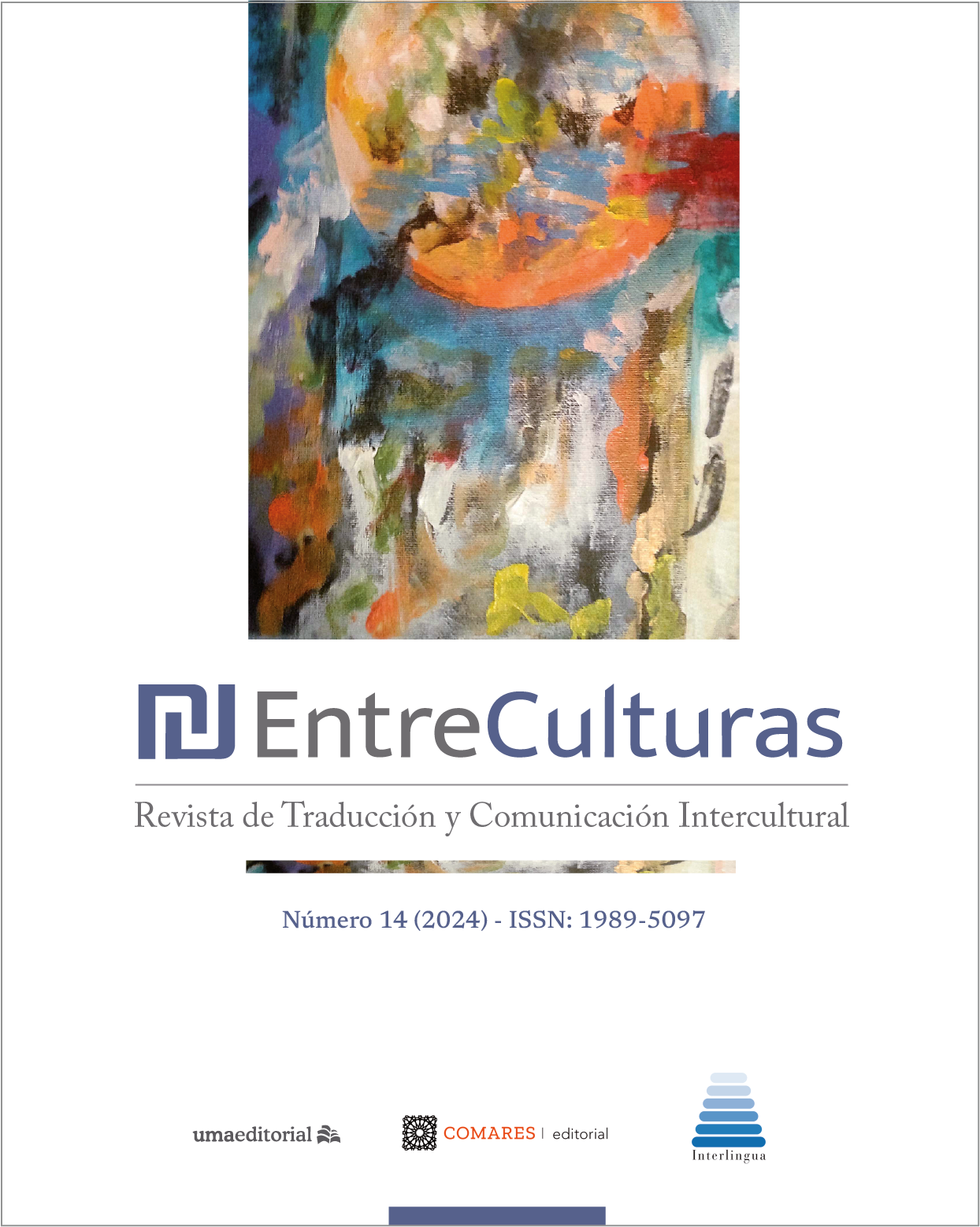Un análisis sobre las noticias occidentales al discurso de Xi Jinping en el centenario de la fundación del Partido
Palabras clave:
ideología, análisis crítico, discurso, traducciónResumen
En este trabajo, hemos seleccionado la teoría de las dimensiones culturales de Hofstede para explicar las razones por las que dos culturas diametralmente opuestas obtienen una gran diferencia en una misma dimensión. Al analizar dos reportajes españoles sobre el discurso de Xi Jinping en el centenario de la fundación del Partido, podemos concluir que la influencia de la ideología en las narrativas públicas generadas por los medios de comunicación es enorme e inevitable. Desde otra perspectiva, la manera en que la ontología lleva a cabo su propia redacción para transmitir actitudes y mensajes que satisfagan tanto al sujeto como al receptor es también una cuestión que debemos discutir.
Descargas
Métricas
Citas
Baker, M. (2006). Translation and conflict: A narrative account (1st ed., transferred to digital printing). London: Routledge.
Carbonell i Cortés, O (2010). Análisis de pautas de traducción ideológica en el discurso periodístico. Valdeón García (ed.). Translating information (pp. 87-124). Universidad de Oviedo.
Dellios, R. (2017). Silk Roads of the Twenty-first Century: The Cultural Dimension. Asia & the Pacific Policy Studies, 4(2), 225-236. https://doi.org/10.1002/app5.172
Dolmaya, J. M (2018). The politics of localization. En Fernández, F. y Evans, J (1st ed.). The Routledge handbook of translation and politics (pp. 343-357). London: Routledge.
Fabian, Johannes. (1982). Time and the Other. How Anthropology Makes its Object. (2nd ed. 2002). Columbia University Press.
Fowler, R. (1991). Language in the news: Discourse and ideology in the press (1st ed., imp). London: Routledge.
Hofstede, G. (1999). Culturas y organizaciones: El software mental?: la cooperación internacional y su importancia para la supervivencia. Madrid: Alianza.
Kurebwa, J., & Muchakabarwa, P. (2019). Media Images of Islamophobia on Cable News Network (CNN) and Implications for International Relations. International Journal of Cyber Warfare and Terrorism, 9(1), 31-47. https://doi.org/10.4018/IJCWT.2019010103
Ma, Y. (2016). A Pragma-Dialectical Approach to Critical Media Discourse Analysis: A Case Study of an Editorial in The Washington Post. Sinología hispánica. China Studies Review, 3(2), 101-114. https://doi.org/10.18002/sin.v3i2.5263
Morris, J. S. (2007). Slanted Objectivity? Perceived Media Bias, Cable News Exposure, and Political Attitudes*. Social Science Quarterly, 88(3), 707-728. https://doi.org/10.1111/j.1540-6237.2007.00479.x
Ming X (2008). Transvaluing the Global: Translation, Modernity and Hegemonic Discourse. En Ning, W. y Yifeng, S. Translation, globalisation and localisation: A chinese perspective (pp. 15-30). Clevedon?; Multilingual Matters.
Steppat, D., Castro Herrero, L., & Esser, F. (2022). Selective exposure in different political information environments – How media fragmentation and polarization shape congruent news use. European Journal of Communication, 37(1), 82-102. https://doi.org/10.1177/02673231211012141
Timbalari, C. (2019). Dimensions of National Culture – Cross-cultural Theories. Studies in Business and Economics, 14, 220-230. https://doi.org/10.2478/sbe-2019-0055
Valdeón García, R. A. (2010). Translating information—Universidad de Salamanca. Oviedo: Universidad de Oviedo. Recuperado de https://brumario.usal.es/discovery/fulldisplay?docid=alma991002333559705773&context=L&vid=34BUC_USAL:VU1&lang=es&search_scope=MyInst_and_CI&adaptor=Local%20Search%20Engine&tab=Everything&query=any,contains,translating%20information&offset=0
Valero Garcés, C., & Tipton, R. (2017). Ideology, ethics and policy development in public service interpreting and translation. Bristol: Multilingual Matters.
Villegas Contreras, A. (2013). Sobre el antropomorfismo político en la República de Platón. Andamios (Mexico City, Mexico), 10(21), 257-277. https://doi.org/10.29092/uacm.v10i21.360
Wodak, R. (1989). Language, Power and Ideology: Studies in political discourse. Amsterdam: John Benjamins Publishing Company.
Wodak, R., Meyer, M., Fernández Aúz, T., & Eguibar, B. (2003). Métodos de análisis crítico del discurso (1a. ed.). Barcelona: Gedisa.
Referencias
Texto de El Confidencial: https://www.elconfidencial.com/mundo/2021-07-01/boato-xi-jinping-centenario-partido-comunista_3160640/
Texto de El Mundo: https://www.elmundo.es/internacional/2021/07/01/60dd2b17fc6c83555a8b4644.html
Texto del gobierno chino: http://spanish.peopledaily.com.cn/n3/2021/0701/c31621-9867524.html
Publicado
Cómo citar
Número
Sección
Licencia
Derechos de autor 2024 Anning Wang

Esta obra está bajo una licencia internacional Creative Commons Atribución-NoComercial-CompartirIgual 4.0.
Todos los contenidos publicados en Entreculturas. Revista de traducción y comunicación intercultural están sujetos a la licencia Creative Commons Reconocimento-NoComercia-Compartirigual 4.0 cuyo texto completo puede consultar en <http://creativecommons.org/licenses/by-nc-sa/4.0>
- Se pueden copiar, usar, difundir, transmitir y exponer públicamente, siempre que:
- Se cite la autoría y la fuente original de su publicación (revista, editorial y URL de la obra).
- No se usen para fines comerciales.
- Se mencione la existencia y especificaciones de esta licencia de uso.
Los derechos de autor son de dos clases: morales y patrimoniales. Los derechos morales son prerrogativas perpetuas, irrenunciables, intransferibles, inalienables, inembargables e imprescriptibles. De acuerdo con la legislación de derechos de autor, Entreculturas. Revista de traducción y comunicación intercultural reconoce y respeta el derecho moral de los autores/as, así como la titularidad del derecho patrimonial, el cual será cedido a la Universidad de Málaga para su difusión en acceso abierto. Los derechos patrimoniales, se refieren a los beneficios que se obtienen por el uso o divulgación de las obras. Entreculturas. Revista de traducción y comunicación se publica en open access y queda autorizada en exclusiva para realizar u autorizar por cualquier medio el uso, distribución, divulgación, reproducción, adaptación, traducción o transformación de la obra.
Es responsabilidad de los autores/as obtener los permisos necesarios de las imágenes que están sujetas a derechos de autor.

7.png)
